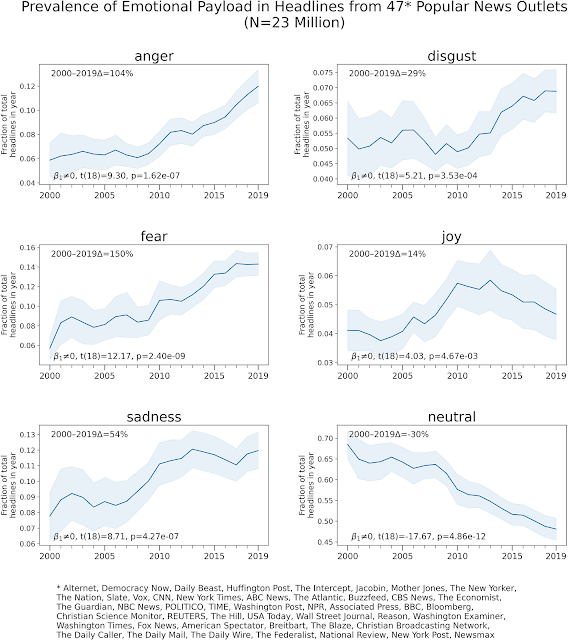Easterlin paradox
Easterlin paradox is...let himself say it:
Richard Easterlin of the University of Southern California: "If you compare the rate of economic growth as the independent variable, let's say, with the rate of change in happiness, the expectation based on the cross-section would be the higher the rate of economic growth, the greater the improvement in happiness. When in fact you look at the data, the relationship is nil. There is no significant relation between the growth rate of GDP per capita and the rate of improvement in subjective wellbeing or happiness. That's for the developed countries."
Thinking about this... , I guess it is an easy comment but... could it be that economic growth has no end (a country can growth for centuries, as it has happended) and happiness scale are limited to 10. I mean, economic growth can be 3% per year during decades but if we consider a 3% growth for happiness rating and two decades, starting from a high level like 7, we would have at the end of the period a 12.64 rate. An impossible given the limit of 10.
Surely there are ways to do surveys without using limited scales like asking 'times felt sad this month'. Thus, it is better to go to Easterlin own's speculative explanation of this paradox(as is still a mistery):
"there are two factors at work, [...] one factor is that as people's incomes go up, their material aspirations rise. So if their aspirations stayed the same, and their incomes went up, they'd closer to achieving what they considered to be the good life in material terms. But when their aspirations go up, that undercuts the effect of the actual improvement of incomes. So, they end up no happier than before.[...]The other part of the story I think has to do with the domains of happiness other than the material domain. What happens with regard to people's family life circumstances? What happens with regard to people's health circumstances? What happens to their job opportunities?"
You will find this explanations at:
http://www.voxeu.org/index.php?q=node/3439
Richard Easterlin of the University of Southern California: "If you compare the rate of economic growth as the independent variable, let's say, with the rate of change in happiness, the expectation based on the cross-section would be the higher the rate of economic growth, the greater the improvement in happiness. When in fact you look at the data, the relationship is nil. There is no significant relation between the growth rate of GDP per capita and the rate of improvement in subjective wellbeing or happiness. That's for the developed countries."
Thinking about this... , I guess it is an easy comment but... could it be that economic growth has no end (a country can growth for centuries, as it has happended) and happiness scale are limited to 10. I mean, economic growth can be 3% per year during decades but if we consider a 3% growth for happiness rating and two decades, starting from a high level like 7, we would have at the end of the period a 12.64 rate. An impossible given the limit of 10.
Surely there are ways to do surveys without using limited scales like asking 'times felt sad this month'. Thus, it is better to go to Easterlin own's speculative explanation of this paradox(as is still a mistery):
"there are two factors at work, [...] one factor is that as people's incomes go up, their material aspirations rise. So if their aspirations stayed the same, and their incomes went up, they'd closer to achieving what they considered to be the good life in material terms. But when their aspirations go up, that undercuts the effect of the actual improvement of incomes. So, they end up no happier than before.[...]The other part of the story I think has to do with the domains of happiness other than the material domain. What happens with regard to people's family life circumstances? What happens with regard to people's health circumstances? What happens to their job opportunities?"
You will find this explanations at:
http://www.voxeu.org/index.php?q=node/3439


Comments